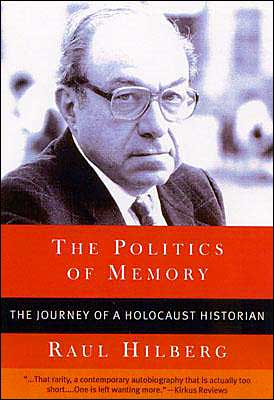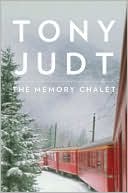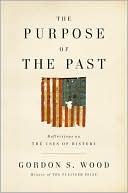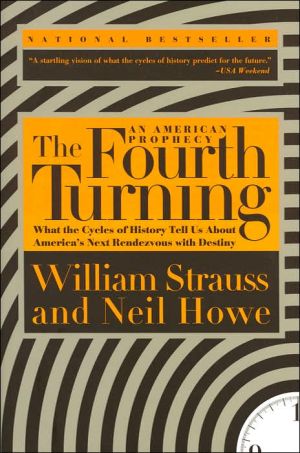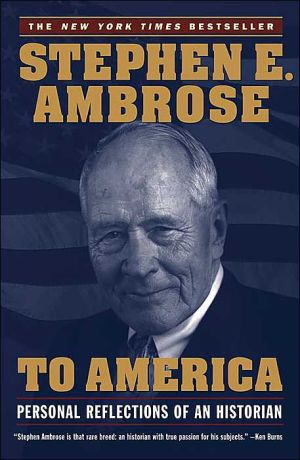Politics of Memory: The Journey of a Holocaust Historian
This is the poignant memoir of a man who has spent most of his lifetime immersed in the evidence of one of the great horrors in human history. It is both a record of how it affected him and a revelation of the surprising ways in which his monumental work was received by his contemporaries. Even after thirty-five years, Raul Hilberg’s The Destruction of the European Jews remains the most distinguished and comprehensive analysis of the Nazi destruction process. Yet at the time it was written,...
Search in google:
This is the poignant memoir of a man who has spent most of his lifetime immersed in the evidence of one of the great horrors in human history. It is both a record of how it affected him and a revelation of the surprising ways in which his monumental work was received by his contemporaries. Even after thirty-five years, Raul Hilberg's The Destruction of the European Jews remains the most distinguished and comprehensive analysis of the Nazi destruction process. Yet at the time it was written, as Mr. Hilberg recounts in The Politics of Memory, both the manuscript and its subject matter were rejected by major publishers and university presses; and in the wake of publication the author faced a hostile reception from those who refused to believe that the Jews were less than heroic in their journey to the gas chambers. How his study was used and abused--especially by Hannah Arendt, Lucy Dawidowicz, and Nora Levin--draws Mr. Hilberg's attention, as does the more admiring reception for Destruction in Europe than in America. The Politics of Memory brings full circle a scholarly enterprise that in many ways has been a terrible calling. A courageous, powerful portrait of one scholar's self-directed search for truth. --Toronto Globe and Mail Publishers Weekly In his writings, eminent Holocaust historian Hilberg (The Destruction of the European Jews) has argued that the Nazi genocide was a bureaucratic, decentralized process, and that the "Final Solution," the plan for total annihilation of European Jewry, was not formulated until 1941. By highlighting the role of the Jewish councils, which he views as agents of accommodation with the German apparatus, and by investigating what he perceives as Jewish victims' lack of resistance, Hilberg has drawn the wrath of scholarly critics. In this defensive, dryly written, sometimes acrimonious memoir, he settles scores with his opponents, notably Holocaust historian Lucy Dawidowicz, and sharply distances himself from Hannah Arendt and her notion of the "banality of evil." Professor emeritus of political science at the University of Vermont, Hilberg relives personal moments of intense drama, as when he escaped Austria with his family in 1939 at the age of 13 or when he arrived in Munich as an American soldier at war's end. There, in the former Nazi party headquarters, he discovered Hitler's private library packed in crates. (Aug.)
Preface5IThe Review13IIBackground19Origins21Formative Years35Crossroads53IIIThe Gamble67Documents69An Art81IVOn Struggling91Securing a Teaching Position93The Road to Publication105VAftereffects121The Thirty-Year War123Questionable Practices138VIWhat Does One Do?159The Second Edition161The Diary of Adam Czerniakow176The Triptych189VIIVienna195Index204
\ Frankfurter Allgemeine ZeitungExtraordinarily reserved... but under the surface it is seething.\ — Christian Meier\ \ \ \ \ Frankfurter RundschauHilberg's memoirs allow the reader to fathom what sort of isolation awaits those who choose such a topic for their life's work.\ — Hans-Martin Lohmann\ \ \ Publishers WeeklyIn his writings, eminent Holocaust historian Hilberg (The Destruction of the European Jews) has argued that the Nazi genocide was a bureaucratic, decentralized process, and that the "Final Solution," the plan for total annihilation of European Jewry, was not formulated until 1941. By highlighting the role of the Jewish councils, which he views as agents of accommodation with the German apparatus, and by investigating what he perceives as Jewish victims' lack of resistance, Hilberg has drawn the wrath of scholarly critics. In this defensive, dryly written, sometimes acrimonious memoir, he settles scores with his opponents, notably Holocaust historian Lucy Dawidowicz, and sharply distances himself from Hannah Arendt and her notion of the "banality of evil." Professor emeritus of political science at the University of Vermont, Hilberg relives personal moments of intense drama, as when he escaped Austria with his family in 1939 at the age of 13 or when he arrived in Munich as an American soldier at war's end. There, in the former Nazi party headquarters, he discovered Hitler's private library packed in crates. (Aug.)\ \ \ \ \ Library JournalIn an erudite, witty, and sometimes sarcastic narrative, Hilberg (Perspective, Victims, Bystanders: The Jewish Catastrophe 1933-1945, HarperCollins, 1992) takes the reader on a tour of his life and work as an Austrian Jewish refugee who grew up to be one of the most controversial Holocaust historians of the day. Whether or not one agrees with Hilberg's interpretation of the Holocaust, or of his observations about his contemporariese.g., Lucy Dawidowiczhis life suggests the social, political, and intellectual forces that shape Holocaust historiography. Of particular interest are the people and events that influenced Hilberg's development as a scholar. His book should be read especially by graduate students and younger scholars because he gives important insights on research, writing, publishing, and job hunting. Recommended for libraries with an interest in the Holocaust and Judaica.Frederic Krome, Northern Kentucky Univ., Highland Heights\ \ \ \ \ BooknewsA memoir of Hilberg's journey to becoming the author of The Destruction of the European Jews, a comprehensive analysis of the Nazi destruction lauded for its research and reviled for its arguments against seeing Jewish victims as uniformly "heroic" in Holocaust history. The autobiography documents the scholarly derision, debate, and manipulation which surrounded the book's publication in 1961, most notably by Hannah Arendt, Lucy Dawidowicz, and Nora Levin. Hilberg's comments are notable for taking in the highly emotional effect of his ideas, and his reaction to the hostility. Annotation c. Book News, Inc., Portland, OR (booknews.com)\ \ \ \ \ Kirkus ReviewsHere, from the dean of Holocaust historians, is that rarity, a contemporary autobiography that is actually too short.\ Recently retired as a professor of political science at the University of Vermont, Hilberg writes movingly of his youth in Vienna and his experiences as a refugee in Cuba and New York. The heart of his work recounts the 13 lonely years he spent sifting through over 40,000 German documents while researching his pioneering, magisterial work, The Destruction of the European Jews (1961), the first study to look at the German bureaucratic machinery of destruction from 1933 on. He notes how difficult it was to find a publisher—several university presses (including Princeton and Columbia) rejected the manuscript. Hilberg also staunchly defends his controversial thesis that during the Holocaust, European Jewish institutions became "an extension of the German bureaucratic machine." Yet his view on this question is severely limited by his lack of access to the Yiddish and Hebrew sources carefully culled by Isaiah Trunk in his book Judenrat. This definitive work on the Jewish councils under Nazi rule paints a much more complex picture of local Jewish leaders' behavior. However, Hilberg is on target in critiquing such historians as Martin Gilbert, who define "Jewish resistance" during the Holocaust so broadly as to render the concept almost meaningless. He also settles scores with other scholars and popular historians of the Holocaust, most notably political philosopher Hannah Arendt. Hilberg tellingly notes how extensively Arendt "borrowed" from The Destruction for her Eichmann in Jerusalem, while providing only the flimsiest credit. Hilberg's style is crisp and succinct, perhaps to a fault. This is very much the memoir of a scholar; those hoping for extensive insights into Hilberg the man will be disappointed.\ One is left wanting more, though also filled with admiration for this remarkable historian's single-minded dedication to his craft.\ \ \
